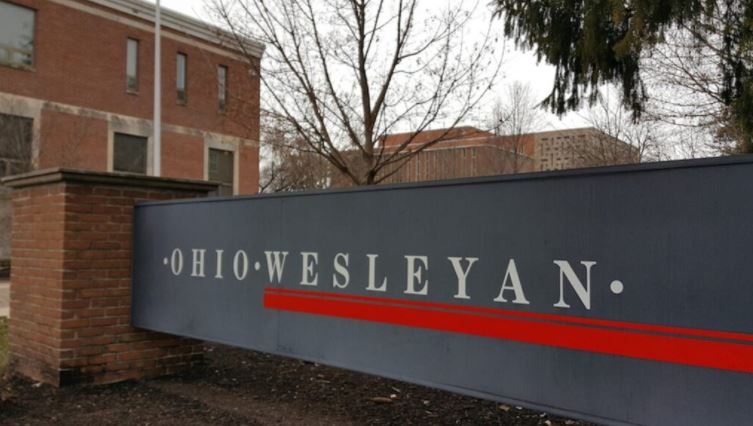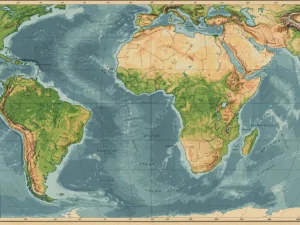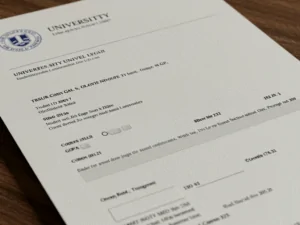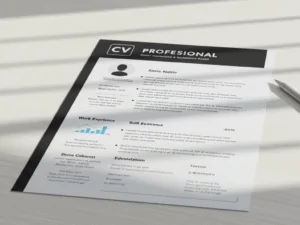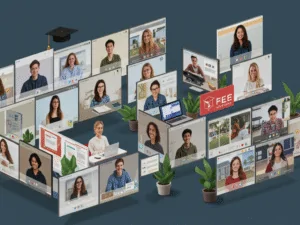Imagine studying at a top university in the USA or Australia without worrying about tuition, travel, or living costs, sounds like a dream, right? The Fully Funded Bill Gates Scholarship in the USA and Australia for Nigerians in 2025 can turn that dream into reality, offering life-changing opportunities for talented Nigerian students.
Backed by the Bill and Melinda Gates Foundation, these scholarships cover full costs for undergraduate and postgraduate studies, empowering Nigerians to excel globally. This guide explains how Nigerians can access these prestigious awards, their benefits, eligibility, and application tips. Let’s dive into your path to studying abroad with the Gates Foundation’s support!
Understanding the Bill Gates Scholarship
The Bill and Melinda Gates Foundation, founded by tech mogul Bill Gates and his wife Melinda, is one of the world’s largest philanthropic organizations, with a $76.95 billion endowment (2025 data). Since 2000, it has funded scholarships to remove financial barriers for talented students, especially from underrepresented groups like Nigerians. Two key programs stand out for Nigerians in 2025:
- The Gates Scholarship (TGS) in the USA: A highly selective, last-dollar scholarship for high school seniors from low-income minority backgrounds, covering full undergraduate costs at any accredited U.S. college or university.
- Gates Cambridge Scholarship in Australia and Beyond: Though primarily for the University of Cambridge (UK), misinformation online suggests it applies to Australia. Instead, Australia offers other fully funded scholarships like the Australia Awards, which align with Gates’ mission but aren’t directly funded by the foundation.
Clarification: Despite some websites claiming a “Bill Gates Scholarship” for Australia, no such program exists directly under the Gates Foundation for Australian universities in 2025. Nigerians can explore Australia Awards or university-specific scholarships for similar benefits. This guide focuses on TGS for the USA and clarifies Australian options.
Why It Matters for Nigerians: Over 15,000 Nigerian students study abroad annually, with the USA and Australia as top destinations (UNESCO 2024). Fully funded scholarships like TGS remove financial hurdles, letting Nigerians focus on academic and leadership growth.
Top 10 Benefits of the Bill Gates Scholarship for Nigerians
The Gates Scholarship (TGS) in the USA offers incredible advantages for Nigerian students, while Australian scholarships provide similar perks. Here’s why these opportunities are game-changers:
1. Full Cost Coverage
TGS covers 100% of undergraduate costs not met by other financial aid, including:
- Tuition: Up to $50,000/year at top U.S. schools like Harvard or MIT.
- Room and Board: Housing and meals, ~$15,000–20,000/year.
- Books and Supplies: ~$1,000–2,000/year.
- Transportation: Flights to/from Nigeria, ~$1,500 round-trip.
- Personal Expenses: Laptops, clothing, etc., ~$2,000/year.
Example: Chidi, a Nigerian TGS scholar at Stanford, pays $0 for his $70,000/year costs, saving ₦112 million over four years (₦1,600/CAD).
Australian Equivalent: Australia Awards cover tuition, living stipends (AUD 30,000/year, ~₦30 million), flights, and health insurance.
Benefit: Study without financial stress, focusing on your goals.
2. Access to Top Universities
TGS lets you attend any accredited U.S. college, from Ivy League schools (Yale, Princeton) to public universities (UCLA, Michigan). Australia Awards support study at institutions like the University of Melbourne or Australian National University (ANU).
- U.S. Options: Over 4,000 accredited schools, with 300 TGS scholars yearly choosing diverse majors.
- Australian Options: 40+ universities, excelling in engineering, health, and environmental sciences.
Example: Ada, a Nigerian, studies computer science at MIT via TGS, while Tolu pursues public health at ANU with Australia Awards.
Benefit: Gain a world-class education recognized globally.
3. Leadership Development
TGS provides more than money—it builds leaders through:
- Summer Institute: A pre-college program for TGS scholars to network and learn leadership skills.
- Mentorship: Pairing with professionals for career guidance.
- Workshops: Training in public speaking, teamwork, and innovation.
Australia Awards offer leadership retreats and alumni networks for professional growth.
Example: Emeka, a TGS scholar, attends a leadership workshop, landing a Google internship.
Benefit: Develop skills to lead in your community and career.
4. Career Support
TGS offers career services, including:
- Internship guidance.
- Resume and interview prep.
- Access to a 5,000+ scholar alumni network.
Australia Awards connect graduates to job opportunities in Nigeria’s public and private sectors.
Example: Funmi, a TGS scholar, secures a finance job in New York via alumni referrals.
Benefit: Launch a global career with strong support.
5. No Debt After Graduation
Unlike loans, TGS and Australia Awards are grants, meaning you owe nothing after graduating. This frees you to pursue your dreams without financial burdens.
- U.S. Context: Average U.S. student debt is $30,000 (2025); TGS scholars graduate debt-free.
- Australian Context: Australia Awards eliminate tuition debt, unlike HECS-HELP loans for locals.
Example: Ngozi graduates from UC Berkeley with TGS, starting her tech startup debt-free.
Benefit: Focus on your future, not repayments.
6. Pathway to U.S. or Australian Residency
Studying in the USA or Australia opens doors to work and residency:
- USA: TGS scholars can work post-graduation via Optional Practical Training (OPT, 1–3 years), leading to H-1B visas or green cards.
- Australia: Australia Awards graduates can apply for temporary graduate visas (2–4 years), with pathways to permanent residency.
Example: Tolu stays in Australia post-graduation, working as a nurse and applying for PR.
Benefit: Build a long-term career abroad if desired.
7. Global Networking
TGS connects you to a diverse scholar community from 50+ countries, while Australia Awards link you to African and Pacific alumni.
- TGS Network: 5,000+ scholars since 2017, including Nigerians in tech, medicine, and policy.
- Australia Awards Network: 10,000+ African alumni, with Nigerian leaders in government and NGOs.
Example: Chika, a TGS scholar, collaborates with a Kenyan scholar on a health app.
Benefit: Build lifelong connections for global impact.
8. Cultural Exposure
Living in the USA or Australia exposes you to diverse cultures, enhancing your worldview and adaptability.
- USA: Multicultural cities like New York or Los Angeles, with Nigerian diaspora communities.
- Australia: Vibrant cities like Sydney, with African cultural festivals.
Example: Ifeanyi, a TGS scholar in Chicago, joins a Nigerian student group, blending cultures.
Benefit: Grow personally and professionally in a global setting.
9. High Employability
Degrees from U.S. or Australian universities are highly valued in Nigeria and globally, especially in tech, healthcare, and business.
- U.S. Stats: 85% of TGS scholars secure jobs within six months of graduation (Gates Foundation 2024).
- Australian Stats: 90% of Australia Awards graduates find employment in their field (DFAT 2024).
Example: Bola, an Australia Awards scholar, returns to Nigeria as a renewable energy expert.
Benefit: Boost your career prospects anywhere.
10. Community Impact
The Gates Foundation and Australia Awards aim to develop leaders who improve their home countries. Scholars are encouraged to contribute to Nigeria’s development.
- TGS Mission: Empower minority leaders to address global challenges.
- Australia Awards Mission: Advance Nigeria’s health, education, and governance.
Example: Aisha, a TGS scholar, starts a STEM program for Nigerian girls post-graduation.
Benefit: Make a difference in Nigeria while studying abroad.
Eligibility for the Bill Gates Scholarship (TGS) in the USA
To qualify for TGS in 2025, Nigerian students must meet strict criteria, ensuring the scholarship reaches high-achieving, low-income minorities. Here’s what you need:
- High School Senior Status:
- Be in your final year of secondary school (e.g., SS3 in Nigeria).
- Equivalent to U.S. high school senior, typically 17–19 years old.
- Minority Background:
- Identify as African-American (includes Nigerians in the U.S. context).
- Other eligible groups: Hispanic, Asian/Pacific Islander, Native American.
- Low-Income Status:
- Be Pell Grant-eligible, a U.S. federal aid for low-income students.
- For Nigerians, prove financial need via family income documents (e.g., parents earning <₦5 million/year).
- U.S. Citizenship or Residency:
- Be a U.S. citizen, national, or permanent resident.
- Challenge for Nigerians: Most Nigerians in Nigeria don’t qualify unless they hold U.S. residency (e.g., via family in the U.S.). Nigerians with dual citizenship or U.S. green cards are eligible.
- Academic Excellence:
- Minimum GPA of 3.3/4.0 (equivalent to 80% or A/B average in WAEC/NECO).
- Top 10% of graduating class preferred.
- Strong SSCE results (5+ credits, including English and Math).
- Leadership Skills:
- Show leadership through extracurriculars, community service, or roles (e.g., school prefect, volunteer).
- Examples: Leading a debate club, organizing charity drives.
- Personal Success Qualities:
- Demonstrate resilience, motivation, and emotional maturity.
- Share stories of overcoming challenges (e.g., financial hardship, rural background).
- Full-Time Enrollment:
- Plan to enroll full-time in a four-year bachelor’s program at a U.S. accredited, not-for-profit college.
Example: Kemi, a Nigerian-American senior in Lagos with a 3.5 GPA and volunteer experience, qualifies for TGS via her U.S. citizenship.
Note for Nigerians: TGS is primarily for U.S.-based Nigerians due to citizenship requirements. Nigerians in Nigeria can explore other Gates-funded programs or Australia Awards.
Eligibility for Australia Awards (Alternative for Australia)
Since no “Bill Gates Scholarship” exists for Australia, the Australia Awards Scholarship is a comparable fully funded option for Nigerians in 2025. Eligibility includes:
- Nigerian Citizenship:
- Be a Nigerian citizen residing in Nigeria.
- Not hold Australian citizenship or PR.
- Age and Education:
- Minimum 18 years old.
- Bachelor’s degree for master’s programs; SSCE for undergraduate (rare).
- 2–3 years’ work experience for master’s applicants.
- Field of Study:
- Priority areas: Health, education, agriculture, governance, or infrastructure.
- Align with Nigeria’s development needs.
- English Proficiency:
- IELTS 6.5 (no band below 6.0) or TOEFL equivalent.
- Some programs offer pre-departure English training.
- Return Commitment:
- Agree to return to Nigeria for two years post-graduation to contribute to development.
- Leadership Potential:
- Show professional or community leadership (e.g., NGO work, public service).
Example: Tunde, a Nigerian with a B.Sc. in Public Health and three years’ NGO experience, qualifies for an Australia Awards master’s at the University of Sydney.
Benefit: Fully funded, accessible to Nigerians in Nigeria, unlike TGS.
Application Process for The Gates Scholarship (TGS) in the USA
Applying for TGS is rigorous, with a <1% acceptance rate (34,000 applicants for 300 awards). Nigerians with U.S. residency can follow these steps for 2025:
Step 1: Create a MyTGS Profile
- Visit the official TGS website (July 15–September 15, 2025).
- Register with your email, creating a username and password.
- Tip: Use a reliable email you check daily.
Step 2: Complete Phase 1 Application (By September 15, 2025)
- Fill out:
- Personal details (name, address, citizenship).
- Academic history (GPA, SSCE/WAEC results).
- Family income details (prove Pell eligibility).
- Extracurriculars and leadership roles.
- Upload:
- High school transcripts (certified WAEC/NECO if applicable).
- Proof of citizenship/residency (U.S. passport, green card).
- Tip: Highlight Nigerian heritage and challenges (e.g., limited resources).
Step 3: Phase 2 Application (October–January 2026, if Selected)
- Write essays (2–4, ~500 words each) on:
- Your background and goals.
- Leadership experiences.
- Overcoming adversity.
- Submit:
- Updated transcripts.
- 2–3 recommendation letters from teachers or community leaders.
- Tip: Use Grammarly to avoid errors; tailor essays to TGS values (leadership, impact).
Step 4: Finalist Interviews (March 2026)
- 600 finalists are interviewed (in-person or video).
- Questions focus on:
- Academic passion.
- Leadership and resilience.
- Future plans.
- Tip: Practice with a mentor; show confidence and authenticity.
Step 5: Award Notification (April 2026)
- 300 scholars are selected.
- Awards are disbursed July–September 2026 for Fall 2026 enrollment.
- Tip: Apply to U.S. colleges simultaneously (deadlines: November 2025–January 2026).
Example: Ifeanyi, a Nigerian-American in Abuja, applies in July 2025, writes compelling essays about his tech club leadership, and wins TGS in April 2026.
Application Process for Australia Awards
The Australia Awards application is open to Nigerians in Nigeria, with a simpler process for 2025:
Step 1: Check Eligibility (January–April 2025)
- Visit the Australia Awards website.
- Confirm your field aligns with priority areas (e.g., health, education).
Step 2: Submit Online Application (February–April 30, 2025)
- Complete the OASIS portal application, including:
- Personal and academic details.
- Work experience (for master’s).
- Study plan (why your program benefits Nigeria).
- Upload:
- Degree/SSCE certificates.
- IELTS/TOEFL scores.
- CV and two referee reports.
- Passport copy.
- Tip: Emphasize Nigeria’s development needs in your study plan.
Step 3: Interviews and Selection (June–August 2025)
- Shortlisted candidates attend interviews in Nigeria.
- Focus on leadership and commitment to Nigeria.
- Tip: Research Australia’s role in African development.
Step 4: Pre-Departure Training (November 2025–January 2026)
- Attend orientation in Nigeria.
- Receive visa, travel, and stipend details.
Step 5: Start Studies (February or July 2026)
- Begin your program in Australia.
- Tip: Apply early to secure your preferred university.
Example: Aisha applies for a master’s in education in February 2025, attends an interview in July, and starts at Monash University in February 2026.
Challenges and Solutions for Nigerians
- TGS Citizenship Barrier:
- Challenge: Most Nigerians lack U.S. residency.
- Solution: Explore Australia Awards or Gates-funded programs like the Gates Millennium Scholars (ended 2016 but may inspire future initiatives).
- High Competition:
- Challenge: TGS has a <1% acceptance rate; Australia Awards are competitive.
- Solution: Strengthen your application with top grades, leadership roles, and polished essays. Seek mentorship from Nigerian alumni.
- Financial Documentation:
- Challenge: Proving low-income status or funding for visa applications.
- Solution: Gather payslips, bank statements, or affidavits early. Save ₦2–5 million for initial costs (refunded by scholarships).
- English Proficiency:
- Challenge: IELTS/TOEFL costs ₦250,000–300,000 and requires preparation.
- Solution: Use free apps like Duolingo or join affordable coaching centers in Nigeria.
- Visa Delays:
- Challenge: U.S. or Australian student visas take 6–12 weeks.
- Solution: Apply 3–6 months early via VFS Global (Nigeria) or Australian embassies.
Example: Tunde overcomes TGS ineligibility by applying for Australia Awards, securing funding and a visa in eight months.
Tips for a Winning Application
- Start Early:
- Begin preparing in SS2 (TGS) or a year before graduation (Australia Awards).
- Research universities and programs by June 2025.
- Build a Strong Profile:
- Volunteer in Nigerian NGOs or school clubs.
- Maintain a 3.5+ GPA or A/B grades in WAEC.
- Craft Compelling Essays:
- Share personal stories (e.g., growing up in a rural area).
- Link your goals to Nigeria’s development (e.g., tech innovation).
- Secure Strong Recommendations:
- Ask teachers or employers who know your leadership skills.
- Give them 4–6 weeks to write letters.
- Practice for Interviews:
- Rehearse common questions (e.g., “Why this scholarship?”).
- Show passion for your field and Nigeria’s future.
- Avoid Scams:
- Use official websites (TGS, Australia Awards).
- Never pay for scholarship applications.
Example: Chinedu volunteers at a Lagos tech hub, earns an A in WAEC Math, and writes an essay about coding for Nigeria’s economy, winning Australia Awards.
Why 2025 Is the Best Time for Nigerians
- Increased Funding: Gates Foundation pledged $200 billion for African education and health (Guardian, June 2025), boosting scholarship opportunities.
- U.S. Demand: 1.2 million U.S. job vacancies in tech and healthcare (2024), hiring international graduates.
- Australian Focus: Australia Awards prioritize African development, with 500+ Nigerian scholars yearly.
- Nigerian Diaspora Growth: Over 300,000 Nigerians in the USA and 20,000 in Australia support new students.
- Digital Tools: Online applications and virtual interviews simplify the process.
Sample Plan for Nigerian Students
Scenario: Nigerian-American High School Senior (TGS)
- Profile: 18-year-old in SS3, U.S. citizen, 3.4 GPA, leads school tech club.
- Goal: Study computer science at UCLA with TGS.
- Timeline:
- June 2025: Take SAT (optional), confirm Pell eligibility.
- July 2025: Create MyTGS profile, draft essays.
- September 15, 2025: Submit Phase 1 application.
- November 2025: Apply to UCLA and three other U.S. schools.
- January 2026: Complete Phase 2 essays and recommendations.
- March 2026: Attend TGS interview.
- April 2026: Win TGS, accept UCLA offer.
- August 2026: Start at UCLA.
- Costs:
- Application Fees: $200 (~₦320,000).
- SAT: ₦100,000.
- Travel/Visa: ₦2 million (covered by TGS).
- Total: ~₦2.4 million, fully refunded.
Scenario: Nigerian Graduate (Australia Awards)
- Profile: 28-year-old with B.Sc. in Agriculture, three years’ NGO experience.
- Goal: Master’s in Sustainable Development at ANU.
- Timeline:
- January 2025: Take IELTS (₦300,000).
- March 2025: Apply via OASIS portal.
- July 2025: Attend interview in Abuja.
- November 2025: Complete pre-departure training.
- February 2026: Start at ANU.
- Costs:
- IELTS: ₦300,000.
- Application/Visa: ₦500,000.
- Travel: ₦2 million (covered by award).
- Total: ~₦800,000, mostly refunded.
Frequently Asked Questions
Is there a Bill Gates Scholarship for Australia?
No, the Gates Foundation doesn’t fund scholarships for Australian universities. Explore Australia Awards for similar benefits.
Can Nigerians in Nigeria apply for TGS?
Only Nigerians with U.S. citizenship or residency qualify. Nigerians in Nigeria should consider Australia Awards or other Gates-funded programs.
What’s the TGS deadline for 2025?
September 15, 2025, for Phase 1; January 2026 for Phase 2.
How competitive is TGS?
Very, with a <1% acceptance rate (300/34,000 applicants).
Do I need IELTS for Australia Awards?
Yes, unless you studied in English; aim for 6.5 overall.
Final Thoughts
The Fully Funded Bill Gates Scholarship in the USA and alternative options like Australia Awards for Nigerians in 2025 are golden opportunities to study at world-class universities without financial worries. While TGS empowers Nigerian-Americans to attend top U.S. schools like Harvard or MIT, Australia Awards open doors for Nigerians in Nigeria to study at Melbourne or Sydney, fully funded. With benefits like tuition coverage, leadership training, and global networking, these scholarships can transform your life and Nigeria’s future. Start preparing now—build your grades, leadership, and application materials to stand out. Ready to chase your study abroad dream? Check these official links to apply!
Apply Now:




